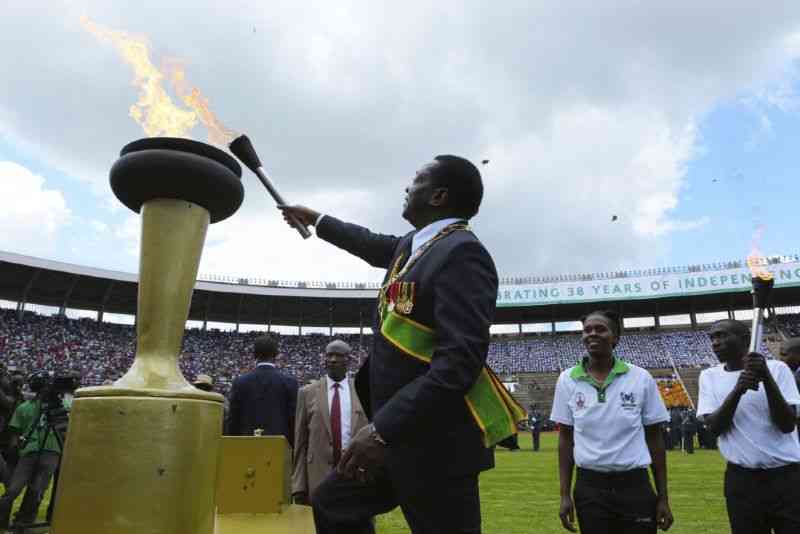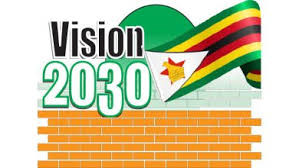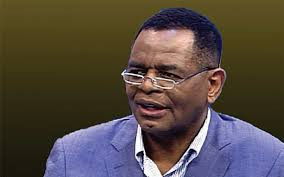
When the Union Jack, Britain’s flag, and symbol of imperialism among the colonised, was lowered in Salisbury now Harare on April 18, 1980, it marked the end of an era — an era of subjugation, injustice, inequality, and a racialised State. The hoisting of the new Zimbabwean flag symbolised the dawn of a new era. A beam of hope radiated as a new State was born from the shackles of colonialism.
Independence was not given on a silver platter. A courageous generation defined by its collective suffering united to free itself from chains of oppression and the yoke of injustice. Freedom gave the black majority rule and the right to self-determination — the right to live and to act as they wish. A right, they were denied for almost a century.
Independence was a moment to usher in a new dispensation of equality and prosperity. Robert Mugabe, the first Prime Minister of an independent Zimbabwe, initially embodied the hopes of a new nation: “Surely this is now time to beat our swords into plowshares, so we can attend to the problems of developing our economy and our society”, he said.
The war-torn, strife-ridden, and divided country also needed healing and reconciliation and an eloquent and articulate Mugabe captivated the masses: “The wrongs of the past must now stand forgiven and forgotten … If yesterday I fought you as an enemy, today you have become a friend and ally with the same national interest, loyalty, rights and duties as myself. If yesterday you hated me, today you cannot avoid the love that binds you to me and me to you.” To follow the conciliatory rhetoric Mugabe appointed Lt Gen Peter Walls, his erstwhile nemesis as the head of a joint high command from the army. Lt Gen Walls was to oversee the integration of the black nationalist guerrilla units into the regular armed forces.
In front of a jubilant crowd at Rufaro Stadium, Jamaican reggae maestro Bob Marley and the Wailers band serenaded the birth of a new nation with a pan-Africanist song Zimbabwe — a song that became an anthem for the country’s long and agonising march to freedom. For those who witnessed the surreal event, the lyrics still echo:
“Every man has the right to decide his own destiny
And in this judgment, there is no partiality
So arm in arms, with arms, we'll fight this little struggle
- Is military's involvement in politics compatible with democracy?
- Feature: Is Auxillia following in 'Gucci' Grace's path?
- Mnangagwa govt harasses opposition with arrests, jail
- Displaced white farmers suffer major setback
Keep Reading
Cause that's the only way we can, overcome our little trouble . . .”
There was genuine international goodwill. Prince Charles, then heir to the British Monarch and now King, presided over the ceremony. His presence legitimised the transition. The British government then led by Prime Minister Margaret Thatcher pledged co-operation with Mugabe’s government. Mugabe downplayed his Marxist inclinations and he became a darling of the West. Zimbabwe was welcome among nations.
The Zimbabwean dream was encapsulated in the hearts and minds of those who sacrificed themselves for a better tomorrow. A better tomorrow, where people can live in peace, harmony and prosperity. A better tomorrow, where the colour of your skin or who you are does not determine your fate.
When the independence jamboree was over, the task at hand was colossal: uniting a war-torn country with many still licking their wounds and developing the rural periphery after decades of neglect — basically forging a nation State. Mugabe gave a prescient warning at the independence ceremony as if he was prophetic: “I must ask you to be patient and allow my government time to organise the programmes that will effectively yield that change.” In hindsight, this was a premonition — a warning for the painful journey ahead. To some, that change is yet to come.
Initially, the dream seemed to be materialising. Under Mugabe, Zimbabwe became a breadbasket for Southern Africa. His government also built schools and clinics in the once-neglected rural areas and thus increased literacy rates and life expectancy. Zimbabwe was hailed as a role model for post-colonial reconciliation, development and peace. The Zimbabwean dream reverberated across Africa. It inspired neighbouring nations such as South Africa and Namibia. It kindled the flames of optimism that a people driven by hope can be masters of their destiny.
Then, something went wrong. Things began to unravel. The dream began to feel like disillusionment. The dream has been elusive since then. Many things went wrong. But, most importantly, at independence, Zimbabwe inherited distorted, extractive, and exclusive institutions whose purpose was to cater to a few. The colonial State was not designed to be a bonanza — a buffet. For a short while, it gave a facade of efficiency and productivity. But in the face of international shocks, increased mass expectations, and lack of modification, the system began to fall apart. It was not too late until the new ruling black elite realised it could use these institutions to protect its interests — power and wealth. This was what the system was designed to do.
As Zimbabwe turns 44, it is apparent that the Zimbabwean dream has turned into a regrettable tale of despair, shattered aspirations and unfulfilled promises — a poignant reminder of the suffering Zimbabweans have endured.
One of the saddest stories of Zimbabwe has been the economy. Once a proud breadbasket. It has degenerated into a begging empty basket. The agricultural sector, once the mainstay of the economy, crumbled since the misguided land reform programme in the early 2000s. The Zimbabwean economy has never been the same since then. The consequences have been catastrophic. Zimbabwe now grapples with a sluggish economy, unemployment, widespread poverty, and a slew of pseudo-currencies that are foisted upon society.
The last time Zimbabweans had a dialogue of this nature was during the Constitution Outreach Programme in 2010. The program produced the 2013 constitution which was approved by 94,5% of voters in a referendum. In 14 years, Zimbabweans have not spoken to each other at a national level. The previous elections in 2018 and 2013 have shown that Zimbabwe is divided. So whatever visions politicians might talk about, as long as they are political and partisan, they are exclusionary and shortsighted.
When there is a shared national dream, and collective national aspiration, politics is a theater for ideas. Ideas on how to pursue and achieve a common dream. Politics becomes a market where politicians pitch their ideas. Those with the best ideas will be given the mandate to govern - all in pursuit of a shared dream. There will be no need to fight or see a fellow compatriot as an enemy. Everyone will be a patriot. The reason why we spy and bludgeon each other during elections is because of the suspicion that somehow those who oppose the status quo must hate their country. This can only happen when there is no collective national aspiration.
During the liberation struggle, many movements fought for independence. Despite their identities, for example, ZIPRA and ZANLA differing along ethnic lines, they all shared the common vision of a free, independent, and prosperous society. They might have differed on ideology, strategy, and tactics to reach this vision.
Even in the United States, one of the oldest democracies, there is what is referred to as the “American Dream” - a dream about upward social mobility. The American Dream is the idea that every citizen of the United States should have an equal opportunity to achieve success and prosperity through hard work, determination, and initiative. Republicans (conservatives) and Democrats (liberals) only differ on what is the best ideology in the pursuit of this dream.
The requiem for the Zimbabwean dream is not a lament of despair. It is an urge for collective action. An exhortation for us to find one another like the generations of the 1960s and 1970s. It is a reminder of a solemn pledge to honor the sacrifices of those who dared to dream in the past for a better tomorrow and a commitment to ensure that their vision is fulfilled. And that responsibility is upon all of us.
Innocent Mpoki is a PhD Student, Political Science Department at Boston College in the United States of America











